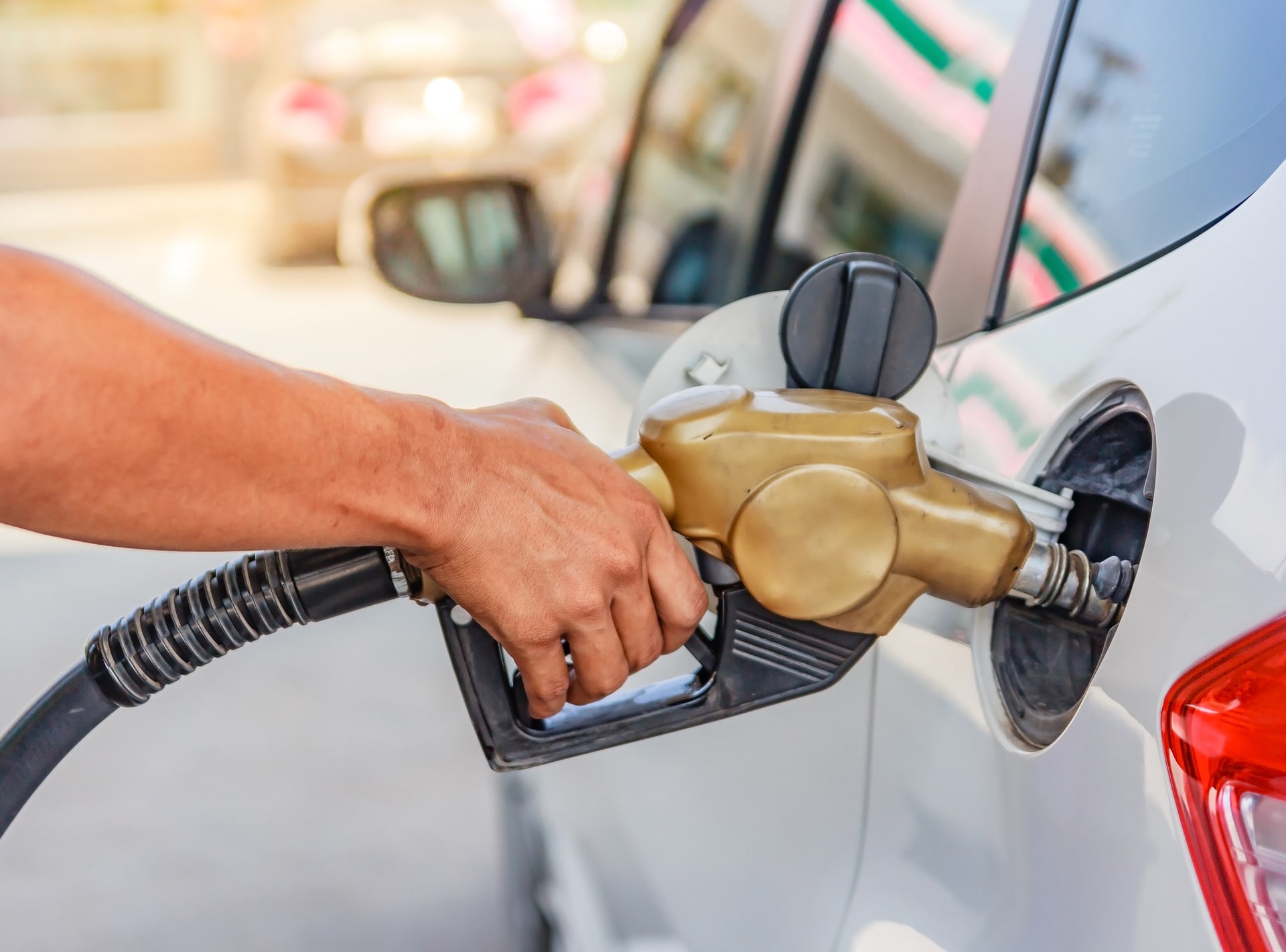Fleet management essentially refers to all the processes involved in overseeing a fleet of vehicles, in order to minimize risks and maximize efficiency. And one of the most important elements of effective fleet management is optimizing fleet fuel efficiency.
In this blog, we discuss what is fleet fuel efficiency, what are the factors that lead to a fuel-efficient fleet, and some tips to improve fleet fuel efficiency.
Firstly, what is fleet fuel efficiency?
Fleet fuel efficiency is the process of optimizing different factors associated with fleet vehicles such as vehicles, drivers, trailers, containers, etc. Fleet fuel efficiency is necessary in this modern era where businesses (irrespective of their size) are making conscious efforts to reduce their carbon footprints. Apart from helping the environment, the benefits of a fuel-efficient fleet include the following:
- Decreases the overall operating fleet cost
- Minimizes turnover
- Boosts the lifespan of the fleet vehicle
To be able to understand your fleet fuel efficiency you need to calculate fleet fuel economy. The fleet fuel economy tells how far the vehicle can travel on a specific amount of fuel. This helps in better understanding where the money is being spent on fuel-related expenses and what measures can be taken as tips to improve fuel efficiency.
In order to calculate fleet fuel economy accurately, you need to do the following things:
- Understand Your Country’s Measurement Standard:
Every country has different standards for how they go about measuring fuel. Some countries use gallons, while some prefer liters. Besides, to measure distance some countries go by miles while others prefer kilometers.
- Keep Track of Fuel:
Record how much fuel is being put into the vehicle along with the current odometer reading. When it’s time for the next refueling, keep an eye on the fuel that has been consumed along with the change in the odometer.
- Calculate:
Thereafter, calculate the distance your vehicle has traveled, and subtract the current odometer reading from the first one. Divide the output by the amount of fuel you have consumed. This should give you the fleet fuel economy.
Now that we know what is fleet fuel efficiency and how to calculate fleet fuel economy, let us talk about some factors that affect fleet fuel efficiency. Three main factors can affect fleet fuel efficiency and they can be controlled by businesses by putting in active efforts. These factors are –
- Driving Technique:
Driver’s behavior and driving technique play a significant role in impacting the fleet fuel efficiency. Factors like constant speed, accelerating gently, and applying brakes in advance could contribute to a decreased fuel cost. If the driver is rather reckless and drives at an inconsistent speed, it may increase fuel consumption and lower the fleet fuel efficiency. - Type and Weight of Vehicle:
Fleet vehicles are of varying categories like cars, vans, and trucks. These fleet vehicles vary in size and weight. Varying size and weight mean varying fuel consumption and fleet fuel efficiency. In general, you will find a lighter vehicle to be more fuel efficient than heavier ones.
But you can’t ignore the fact that some large vehicles can pick up heavy loads and deliver them in fewer trips compared to the smaller vehicles. The number of trips affects the cost-effectiveness and further results in lower fleet fuel efficiency.
- Route Optimization:
A travel route is considered optimized when it takes into consideration various aspects like destination, required fuel, and load. With proper route optimization, fuel cost decreases, time of delivery reduces and the vehicle’s speed is increased. More often than not, it is the poor route optimizations that result in drivers taking longer routes and consuming more than required fuel.
In short, it is important to keep the aforementioned factors in mind to ensure that there is less fuel consumption and that the fleet fuel efficiency is increased. To read about the key takeaways from the Corporate Electric Vehicle Alliance survey, click here.
Now that you know what are some of the factors affecting fleet fuel economy, let us talk about some useful tips to improve fleet fuel efficiency.
1. Selecting the most efficient route:
Choosing an optimal routing plan is necessary to maximize the fleet fuel efficiency. You should consider certain factors like distance, idling time, fleet MPG, MPG on a flat surface as well as terrain.
While creating a route plan keep the busy time of the day and spotlight frequency into account. It is important to understand that just because you have found the shortest path, this does not mean it will consume less fuel as factors like road quality, traffic, and speed limit can impact fuel consumption. Furthermore, a route that has rough terrain will consume more fuel compared to flat surfaces.
2. Invest in Fuel Tracking Technology:
Invest in the latest fuel tracking technology to keep a track of the fleet’s fuel usage. A robust fuel-tracking technology device will have a secure web portal that will make it easy to access information from anywhere. It will track fuel usage by job, thus helping you understand which tasks are resulting in high fuel consumption. This will help you re-route and budget accordingly.
It will have a fuel fraud reduction system that will identify any unusual-looking fuel-related transactions and hold the driver accountable for them. You can also conduct advanced analysis by exporting data from an excel spreadsheet in a few clicks.
3. Make the most out of data:
You can utilize the data to maximize fleet fuel efficiency. By comparing usage by the driver, you can identify how the driver’s fuel consumption differs on the same route. This will help you determine who uses the most fuel.
By looking at each vehicle’s fuel efficiency you can determine which vehicle among your fleet has the lowest miles per gallon. This will help you fix the problem from the root level. This will also help in uncovering mechanical or design issues which otherwise are left unnoticed. Furthermore, according to research, GPS fleet management helps lower accident costs by 16-30%.
4. Get rid of extra weight:
Did you know the heavier the vehicle or cargo, the lower would be its miles per gallon? Yes, fleet vehicles that have the lowest weight can maximize fleet fuel efficiency. There are various ways by which you can make your fleet lighter such as –
- Investing in lighter vehicle parts: You can replace certain parts of your vehicle with lighter models. This depends on your budget and the vehicle model. Nowadays most vehicle parts are made of aluminum which reduces the overall weight of the vehicle.
- Minimize the cargo weight and drag: While loading your vehicle with cargo, it is important to keep both weight and aerodynamics in mind. A cargo placed in the vehicle will put less strain on the miles per gallon compared to putting the same cargo on the top. Analyze the fuel consumption data to distribute the cargo weight evenly across your vehicle to maximize fleet efficiency. Wind resistance can also be improved by removing any unnecessary containers when not in use.
- Get rid of unwanted items: The driver designated to the vehicle gets into the habit of keeping things in their container. While some of them are important and play crucial roles in performing everyday delivery, the same can not be said about everything. Ask your driver to periodically inspect the vehicle and get rid of any unwanted items.
6. Track Traffic:
Traffic is one such important factor that both you and your drivers should keep in mind to maximize their MPG. Depending on location and the time of the day, traffic varies from place to place. While some areas may have traffic congestion during the morning and afternoon, you might find just a few vehicles during the workday.
Drivers can also utilize traffic conditions to maximize fleet fuel efficiency. Those who keep an eye on traffic flow, and signs tend to see reduced fuel consumption since the possibility of sudden starts and stops decreases. Using routing software and keeping a tab on the traffic and construction alerts can ensure that the driver is prepared to face congested roads.
6. Fleet Maintenance:
It is important to periodically inspect the vehicle and maintain them to ensure efficient fuel economy. Vehicle parts that do not function at their full capacity tend to lower the miles per gallon of the vehicle. There are four different components whose regular maintenance can ensure maximized fuel efficiency- tip pressure, engine, oil, and air filter. Tires with the right pressure not only reduce fuel consumption but also maximize vehicle MPG.
Regularly checking your engine and fixing issues which could be mechanical or design can improve the mileage and increase MPG. Make use of oil that comes with an “energy conserving” feature as this can significantly improve the mileage. You can also replace clogged air filters with new ones to improve acceleration.
7. Select the Right Vehicles and Parts:
Replacing old vehicles or adding new ones to the fleet allows you to maximize fuel efficiency. While replacing old parts and looking for a new one, keep an eye out for the aerodynamics. The latest models come with more fuel-saving features like lower wind resistance which can cost much less than investing in a new vehicle. You can also opt for hybrid vehicles which are relatively lighter and smaller models that make use of electricity to increase their MPG.
Apart from reducing global warming emissions and producing less pollution, improving fleet fuel efficiency results in a significant reduction in oil consumption and minimized overall operational cost.
In conclusion, implementing the aforementioned tips to improve fleet fuel efficiency can help you become a more fleet fuel-efficient business.
About RENTALL
RENTALL is the broadest, most adaptable and continuously evolving rental platform on the market. No matter your company size, location or business goals, RENTALL delivers improved operations, smart reports, increased bookings and happy customers, all through an easy-to-use interface. Explore our solutions here, or connect with us at +1 888 628 6827 or info@rentallsoftware.com for a consultation.






























